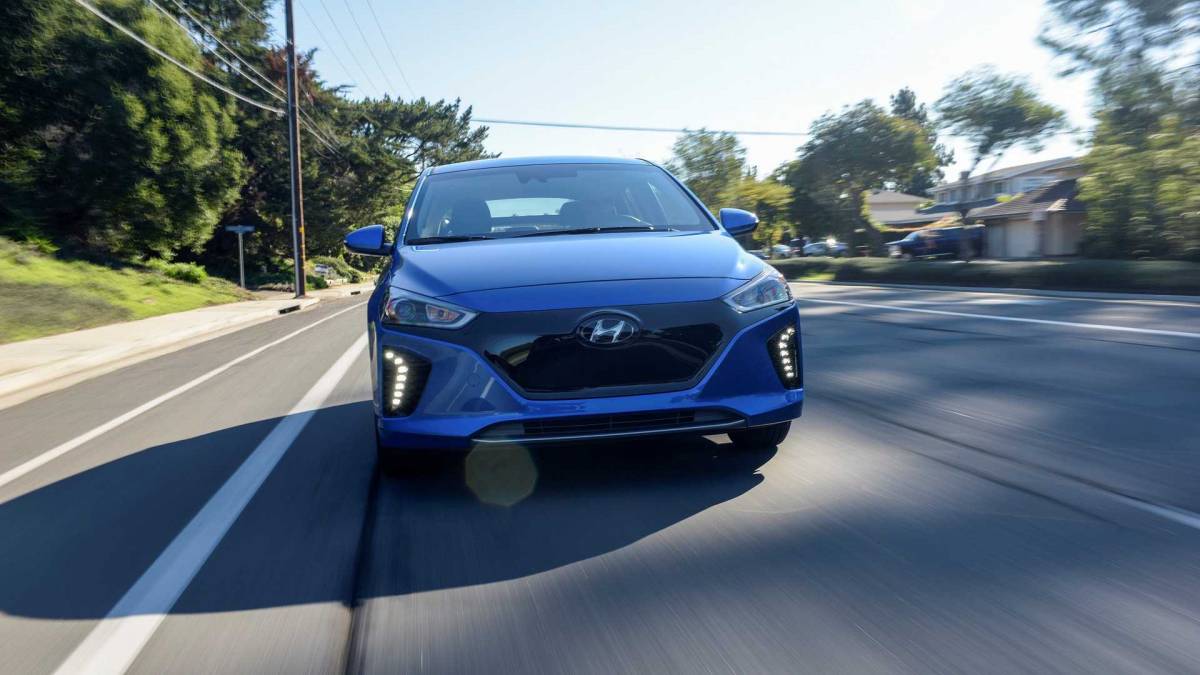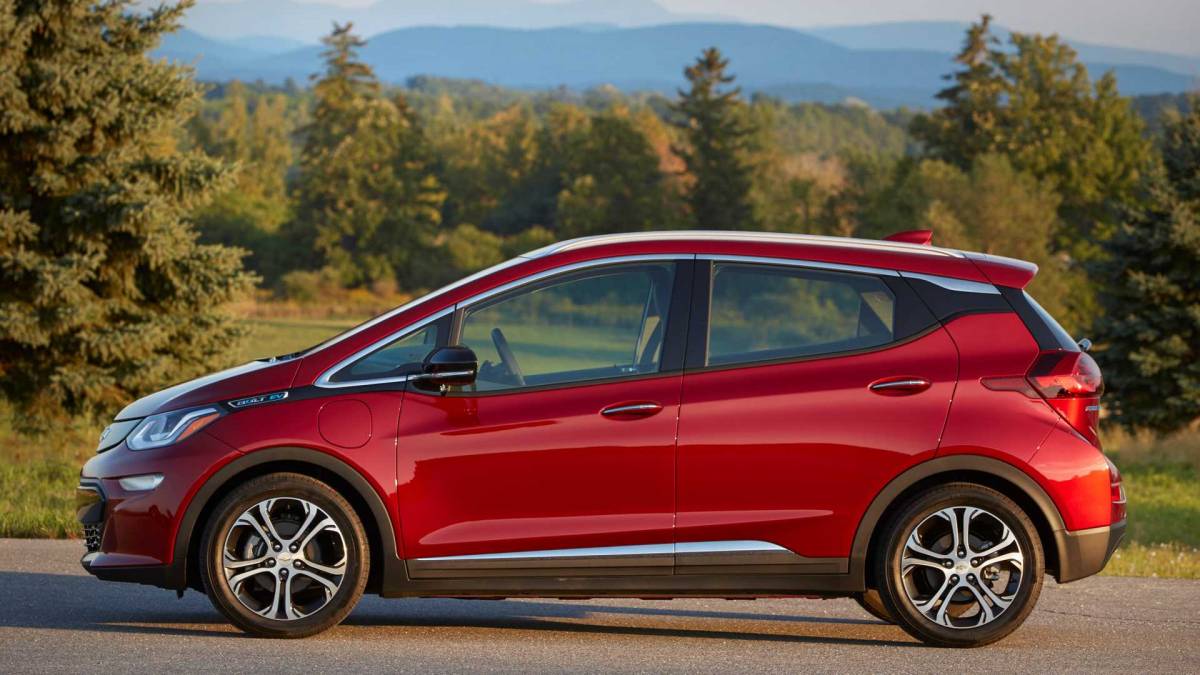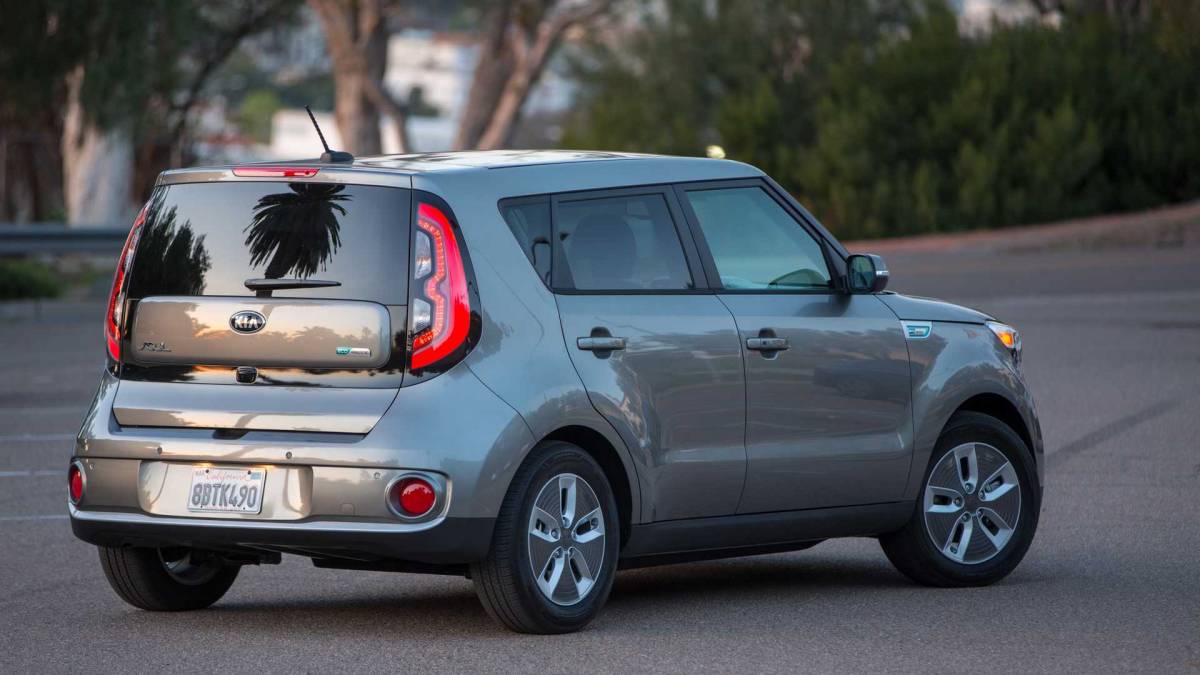
An EV’s sticker price is only one element of its total long-term ownership costs.
Whether you’re looking for a conventionally powered car or an electrified ride, it pays to look beyond a new vehicle’s sticker price and consider its total cost of ownership to ensure you’re getting the best deal over the long haul.
We’re featuring estimates for what are expected to be the cheapest-to-own electric vehicles for 2019, based on five-year cost data provided by the valuation authorities at Kelley Blue Book and Edmunds.com.
The biggest ownership expense for any vehicle is one that’s too-often overlooked, namely depreciation. It’s especially critical when shopping for an EV in that they’ve tended to suffer from below-average resale values because of the federal one-time tax credit that effectively cuts the transaction price by as much as $7,500, along with other factors. That situation is beginning to change, however, as new models that can run for more than 200 miles on a charge are predicted to hold onto their values more tenaciously.
Be aware that this factor is just as critical if you’re among the many EV aficionados who lease instead of buying a vehicle outright. That’s because lease payments are largely based on the difference between a vehicle’s transaction price and what it’s expected to be worth at the end of the contract.
Insurance premiums are also a bit higher among electric cars than other vehicle types. That’s largely because they can cost more to repair after getting into a wreck because of their pricey battery packs.
On the other hand, EV owners tend to come out ahead in terms of powering their rides. It costs far less to keep an electric car charged than to keep a gas tank filled. For example, the Environmental Protection Agency, says a Nissan Leaf that gets the equivalent of 112 miles per gallon (expressed as “MPGe”) will cost an average owner $500 a year in electricity costs. That’s $5,000 less than it would take to run the average new vehicle for five years at 15,000 miles driven annually.
An electric car is also cheaper to maintain. An EV doesn’t require fluid changes or tune-ups, and there are fewer moving parts that would eventually fail and need replacing. EVs use a simple one-speed transmission and eliminate wear-and-tear items like spark plugs, valves, muffler/tailpipe, distributor, starter, clutch, drive belts, hoses, and a catalytic converter. What’s more, an EV‘s warranty covers the battery pack for at least 8 years or 100,000 miles (whichever comes first).
All of the models in our list are eligible for a one-time $7,500 federal tax credit with the exception of the Chevrolet Bolt EV. The Bolt’s incentive is being phased out since General Motors reached 200,000 total sales of EV and plug-in hybrids last year. It’s currently $3,750, but will drop to $1,875 on October 1, and is scheduled to go away altogether on March 31, 2020.
The manufacturer’s suggested retail price (MSRP) and five-year ownership cost predictions for each vehicle in the slideshow are for base models without options, taxes, and registration fees, but include the mandatory destination charge. It should be noted that five-year-ownership cost data is not yet available for some recently introduced models including the Honda Clarity Electric, Hyundai Kona Electric, Kia Niro EV, and the Tesla Model 3.

6. Chevrolet Bolt EV
Five-year cost to own: $36,060. The Chevrolet Bolt EV holds onto its resale value better than all EVs but the Teslas, with five-year depreciation estimated at $25,028, based on an MSRP of $37,495. Out of pocket expenses, including fuel, insurance, maintenance, repairs, and registration are projected at $11,032. It’s rated at 128/110 MPGe city/highway, and can run for an average of 238 miles on a charge

5. Kia Soul EV
Five-year cost to own: $36,561. The boxy-but-roomy Kia Soul EV is expected to lose $27,607 of its original $34,945 MSRP over a five-year ownership period, but it has affordable operating expenses at $8,954. It’s rated at 124/93 MPGe with an operating range of 111 miles with a fully charged battery.
4. Fiat 500e
Five-year cost to own: $ 33,590. The cute and comely Fiat 500e is only available in California and Oregon. It’s expected to drop in value by $28,025 over five years, from a base MSRP of $34,705. Out of pocket expenses are anticipated to run an owner $5,565 during that period. It’s rated at 121/103 MPGe with an 84-mile operating range.
3. Hyundai Ioniq Electric
Five-year cost to own: $32,740. With a base MSRP of $31,235, the Hyundai Ioniq Electric is expected to lose $25,613 of its original value after a five-year ownership period, with $7,127 in ongoing running costs. It’s rated at 150/122 MPGe with an average range of 124 miles on a charge. Its availability is limited to California and 13 other states (and the District of Columbia) that have adopted its emissions standards.
2. Nissan Leaf
Five-year cost to own: $31,087. The Nissan Leaf is the second cheapest EV to own for 2019, and it would be, for most, an eminently more practical ride than the number one car on the list. It’s expected to lose $22,407 of its original $30,885 base price over five years and cost $8,680 to drive for 15,000 annual miles. It’s rated at 124/99 MPGe, and run for an average 150 miles on a charge. The new Nissan Leaf Plus is rated at 114/94 MPGe and has an extended range at 215 miles, but with a higher MSRP that starts at $37,445.
1. Smart EQ ForTwo
Five-year cost to own: $24,650. The cheapest electric car to purchase and lease also has the lowest five-year ownership costs. Unfortunately the Smart EQ ForTwo is not for everyone as it seats only two, has little in the way of cargo space, and musters a feeble operating range of just 58 miles. Out-of-pocket expenses are estimated at $12,490 over half a decade. On the plus side, it’s the only EV available as a convertible, and the base coupe’s depreciation is a modest $15,587, based on a $24,650 MSRP. It’s rated at 124/94 MPGe.
